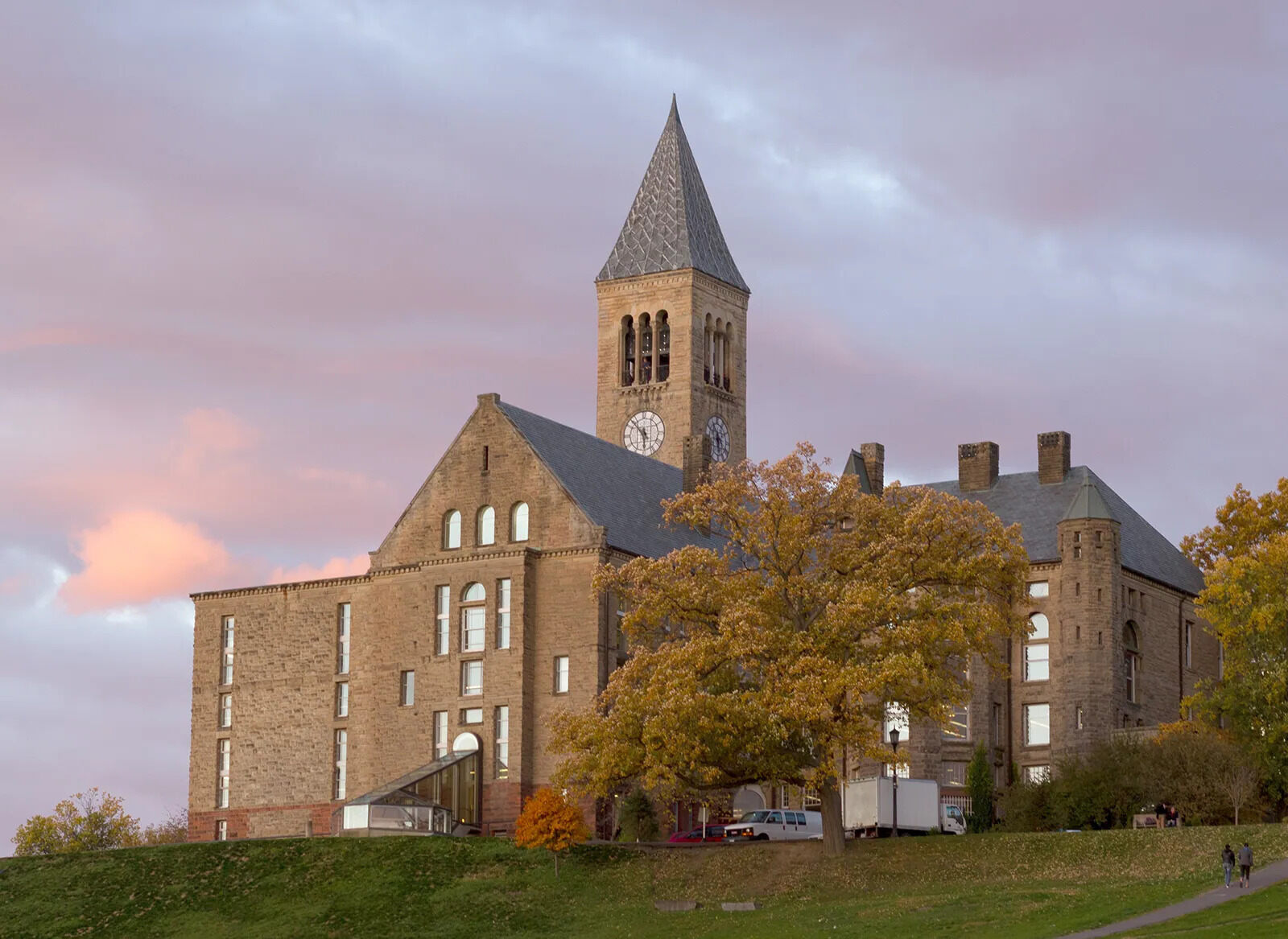
Cornell University stands as a beacon of higher education, nestled in the picturesque town of Ithaca, New York. Founded in 1865 by Ezra Cornell and Andrew Dickson White, this Ivy League institution boasts a rich history and a commitment to public service. Did you know that Cornell was the first university to offer degrees in veterinary medicine? With over 15,000 undergraduates and a sprawling campus that includes a botanical garden, Cornell is a blend of academic rigor and natural beauty. From its diverse student body to its cutting-edge research, Cornell continues to shape leaders and innovators. Ready to learn more? Here are 25 fascinating facts about Cornell University!
History and Founding
Cornell University has a rich history that dates back to the 19th century. Let's dive into some fascinating facts about its origins and early years.
-
Founded in 1865: Ezra Cornell and Andrew Dickson White established Cornell University in 1865. Their vision was to create an institution where any person could find instruction in any study.
-
Land-Grant University: Cornell is one of the original land-grant universities in the United States, receiving federal land to fund its establishment.
-
First Cohort: The university opened its doors to students in 1868 with an initial enrollment of 412 students.
-
Coeducation Pioneer: Cornell was among the first universities to admit women, starting in 1870, making it a pioneer in coeducation.
Campus and Architecture
Cornell's campus is renowned for its stunning architecture and scenic beauty. Here are some intriguing details about its physical environment.
-
Ithaca Campus: The main campus is located in Ithaca, New York, and spans over 2,300 acres.
-
Iconic Clock Tower: McGraw Tower, home to the Cornell Chimes, is one of the most recognizable landmarks on campus.
-
Botanic Gardens: Cornell Botanic Gardens cover 4,300 acres and include a diverse range of plant collections and natural areas.
-
Historic Buildings: Morrill Hall, one of the original buildings, still stands today and is used for administrative purposes.
Academics and Research
Cornell is known for its rigorous academic programs and groundbreaking research. Here are some key facts about its academic prowess.
-
Seven Undergraduate Colleges: Cornell offers a wide range of programs through its seven undergraduate colleges, including the College of Arts and Sciences and the College of Engineering.
-
Nobel Laureates: Over 50 Nobel Prize winners have been affiliated with Cornell as faculty or alumni.
-
Research Funding: The university receives over $700 million annually in research funding, supporting a wide array of projects.
-
Library System: Cornell's library system is one of the largest in the country, with over 8 million volumes.
Student Life and Traditions
Life at Cornell is vibrant and full of traditions that have been passed down through generations. Here are some highlights.
-
Diverse Student Body: Cornell has a diverse student population, with students from all 50 states and over 120 countries.
-
Dragon Day: An annual tradition where architecture students parade a giant dragon across campus.
-
Slope Day: A year-end celebration featuring live music, food, and festivities on Libe Slope.
-
Big Red Marching Band: The university's marching band is a staple at athletic events and other campus activities.
Athletics and Extracurriculars
Cornell offers a wide range of athletic and extracurricular opportunities for students. Here are some notable aspects.
-
Ivy League Member: Cornell is a proud member of the Ivy League, competing in 37 varsity sports.
-
Ice Hockey: The men's ice hockey team is particularly popular, with a strong following and a history of success.
-
Club Sports: In addition to varsity sports, there are over 30 club sports teams available to students.
-
Student Organizations: There are more than 1,000 student organizations, catering to a wide range of interests and activities.
Notable Alumni
Cornell has produced many influential and successful alumni. Here are some of the most notable.
-
Ruth Bader Ginsburg: The late Supreme Court Justice graduated from Cornell in 1954.
-
Bill Nye: Known as "The Science Guy," Bill Nye earned a mechanical engineering degree from Cornell.
-
Toni Morrison: The Nobel Prize-winning author and Pulitzer Prize recipient attended Cornell for her master's degree.
-
E. B. White: The author of "Charlotte's Web" and "Stuart Little" graduated from Cornell in 1921.
-
Ratan Tata: The former chairman of Tata Group, one of India's largest conglomerates, is a Cornell alumnus.
Final Thoughts on Cornell University
Cornell University stands out with its rich history, diverse programs, and notable alumni. Founded in 1865, this Ivy League institution has consistently pushed the boundaries of education and research. From its unique blend of public and private funding to its stunning campus in Ithaca, New York, Cornell offers a distinctive college experience. The university's commitment to inclusivity and innovation is evident in its extensive range of courses and groundbreaking research initiatives. Whether you're interested in engineering, agriculture, or the arts, Cornell provides a nurturing environment for intellectual growth. Its alumni network, including Nobel laureates and industry leaders, speaks volumes about the quality of education. With a strong emphasis on community and global impact, Cornell continues to shape the future. If you're considering higher education, Cornell University is a place where dreams and ambitions can truly flourish.
Was this page helpful?
Our commitment to delivering trustworthy and engaging content is at the heart of what we do. Each fact on our site is contributed by real users like you, bringing a wealth of diverse insights and information. To ensure the highest standards of accuracy and reliability, our dedicated editors meticulously review each submission. This process guarantees that the facts we share are not only fascinating but also credible. Trust in our commitment to quality and authenticity as you explore and learn with us.


